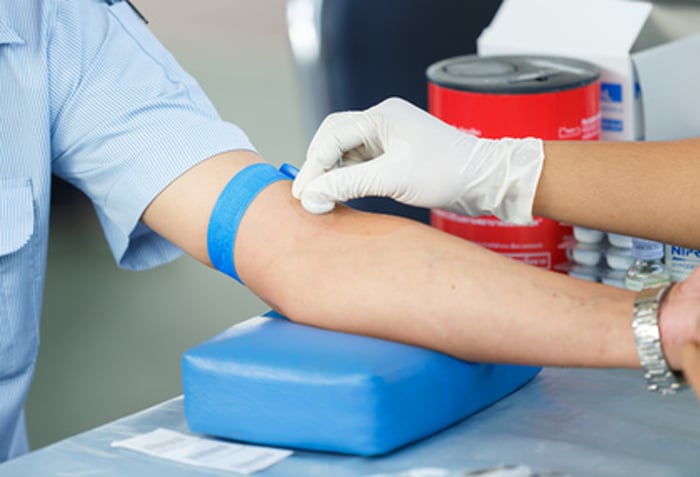What is a Phlebotomy Technician? Everything You Need to Know About This Vital Medical Role
In the healthcare field, many essential roles work behind the scenes to ensure patient care and accurate diagnostics. One such vital role is that of the phlebotomy technician. If you’re curious about this profession or considering a career in medical laboratory work, you’re in the right place. This complete guide covers everything you need to know about phlebotomy technicians, from their duties and training to benefits and real-world experiences.
What is a Phlebotomy Technician?
A phlebotomy technician, also known as a phlebotomist, specializes in drawing blood from patients for laboratory testing, blood donations, or transfusions. They play a critical role in the healthcare system by ensuring blood samples are collected safely and efficiently, which is crucial for accurate diagnoses and patient care.
Key Responsibilities of a Phlebotomist
- Venipuncture: Drawing blood from veins using needles
- capillary punctures: Collecting blood via fingerstick or heelstick for infants
- Labeling and handling specimens accurately
- Maintaining sterile technique and adhering to safety protocols
- Keeping detailed patient records
- Educating patients about procedures and calming nervous individuals
- Transporting specimens to laboratories
Skills and Qualifications Needed to Become a Phlebotomy Technician
Triumphant phlebotomists possess a unique blend of technical skills, interpersonal abilities, and attention to detail. Here’s what you typically need:
- High school diploma or equivalent
- Completion of a phlebotomy training programme
- Certification (optional but highly recommended)
- Strong communication and customer service skills
- Manual dexterity and steady hands
- Ability to stay calm under pressure
- Knowledge of safety and infection control procedures
How to Become a certified Phlebotomy Technician
While requirements vary by state and employer, most aspiring phlebotomists follow these steps:
- Complete a recognized phlebotomy training program, which typically lasts from a few weeks to a few months.
- Gain practical experience through clinical hours included in training programs.
- Obtain certification from reputable organizations such as the American Society for Clinical Pathology (ASCP) or National Phlebotomy Association (NPA).
- Apply for open positions in hospitals, clinics, blood banks, or laboratories.
| Step | Details |
|---|---|
| 1.Education | High school diploma or GED |
| 2. Training | Complete a certified program (~40 hours) |
| 3. certification | Pass a recognized certification exam |
Benefits of Becoming a Phlebotomy Technician
If you’re considering this career path, here are some compelling benefits:
- High demand: The healthcare industry consistently needs qualified phlebotomists.
- Short training programs: Typically, you can start working within a few months.
- Good salary potential: entry-level salaries are competitive and can increase with experience and certification.
- Flexible work environments: work in hospitals, clinics, blood donation centers, or diagnostic labs.
- Opportunities for advancement: Transition into related fields like medical assisting,laboratory technology,or healthcare management.
Practical Tips for Success in Phlebotomy
Starting your journey as a phlebotomist can be rewarding, and here are some practical tips to help you excel:
- Always prioritize patient comfort and safety
- Practice venipuncture techniques regularly to build confidence
- Stay updated with safety protocols and infection control measures
- Develop excellent communication skills to ease patient anxiety
- Seek mentorship or shadow experienced professionals
- Join professional organizations for ongoing education and networking
Real-World Experiences: Insights from Current phlebotomists
Hearing directly from those in the field can provide valuable insight into the daily life of a phlebotomy technician. Here’s what some professionals have shared:
Sarah, Certified Phlebotomist: “The most rewarding part of my job is helping patients feel at ease during what can be a stressful procedure. overcoming needle-phobia is a challenge, but seeing them smile afterward makes it all worth it.”
Michael, Lab Technician: “Working as a phlebotomist opened doors for me in the healthcare field. The skills I learned are foundational, and it’s a great stepping stone for further specialization.”
Conclusion
Becoming a phlebotomy technician is a fulfilling and accessible way to enter the healthcare industry. With the right training,certification,and a compassionate approach,you can play a vital role in patient care and diagnostics. Whether you’re seeking a short pathway to a healthcare career or considering a stepping stone into advanced medical fields, phlebotomy offers promising opportunities. Remember, success in this role relies on technical skill, empathy, and a commitment to safety, making it an essential and respected profession in medicine.
